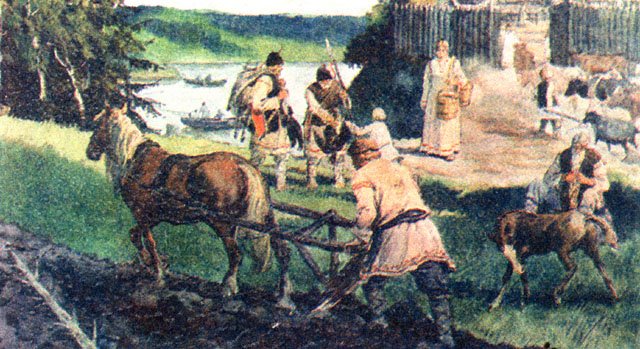History and Political Understanding in the Common Man
American's Lack of History Affects Understanding of Kosovo-Metohija
Michael Mennard writes in Washington Post 18 Nov 2006:
Americans don't understand or like history, which most other cultures accept and study as an invaluable source of knowledge and experience. Americans generally look at history as an unnecessary burden that can have only a negative influence on the present.
Your editorial regarding Kosovo, the very cradle of Serbia, showed such ignorance. Nowhere did it note that Kosovo has been part of Serbia since the Serbs moved to it in the sixth century, four centuries before any Albanians were heard of in the Balkans.
Moreover, the editorial said, "By incorporating Kosovo into a new constitution, Serbia's leaders staked out yet another of the reckless nationalist stands that have caused their country so much damage in the past 15 years."
Wrong. It is ignorance of historic facts displayed by The Post and other similarly inspired American publications that has caused so much damage to a small but brave nation and a loyal ally in two world wars. The Serbs do not want what belongs to others, but they will not give away what is rightfully theirs.
The United States and its citizens would react in the same way if someone suddenly decided that Southern California or New Mexico should secede just because Spanish-speaking Mexicans live there.
As for your specter of 2 million Albanians in Kosovo being enraged, they should just go back where they came from -- neighboring Albania. Most Albanians came to Kosovo during World War II or during the rule of Marshal Tito of Yugoslavia, which maintained an open border with Albania, its fellow communist neighbor. Since then the incoming Albanians have systematically pushed untold numbers of Kosovo Serbs out of Kosovo.
Your editorial writers should study history to ensure more meaningful and more accurate editorials.
-- Michael Mennard
Potomac Falls
21 November 2006
Dear Editor,
Although I agree with Michael Mennard's editorial in general, I feel compelled to say that comparing an hypothetical secession of California or New Mexico is not a good reference point. Those areas were taken from the Mexican Government just after it won its independence from Spain early in the 19th century. The Alamo is in actuality a glorification of a hostile takeover of land wanted by the United States government. Intrigue played a big part in the developments that led to citizens of the United States asking to have lawful Mexican territory annexed to the U.S. Colonists, supported by American citizen Stephen Austin, basically homestead on land already considered a part of the United States of Mexico. Yes he did purchase the land, but I don't think the Mexican Government expected him to hand it over to the U.S. The land grab by the United States of America was facilitated by unstable circumstances in Mexico's new government. The parallels to the Kosovo-Metohija situation is uncanny, and underscores the United States favoring of independence of this province of Serbia. Whether Albania has plans to incorporate an independent Kosovo-Metohija or not remains to be seen. So far its voice in this affair has been strangely mute. Maybe the U.S. thinks that it will gain some influence in the area (and irritate Russia) by acting as the Brits did during the Texas crisis in the late 19th century. The Brits thought to gain influence by supporting Texas independence as a way to continue to have an influence in the New World. The bottom line is that the United States move violated Westphalian Principles enacted in 1648. Now currently, the United States has violated International Laws concerning sovereignty of states, those states rights to self-determination and freedom from interference by other states. These are the issues that the Prime Minister of Serbia Kostunica brings up again and again, and which are ignored by Great Britain, Germany, and the United States consistently. I don't understand why our government is behaving so badly. It is acting as a surreal reincarnation of the 13th century King John, who was eventually forced to sign the Magna Carta. Maybe the other nations will have to stop bowing to America's supposed military might and demand that it act as a good neighbour not only in word, but in deed as well. Perhaps, if more of the U.S. citizens understood its politics in a historical context, our current foreign policy would mandate that we rectify our past mistakes by acknowledging Serbia's territorial integrity. But apparently in the minds of U.S. political leaders, that would constitute a negative effect.
xenia lynn teresa williams
Eugene Oregon

















